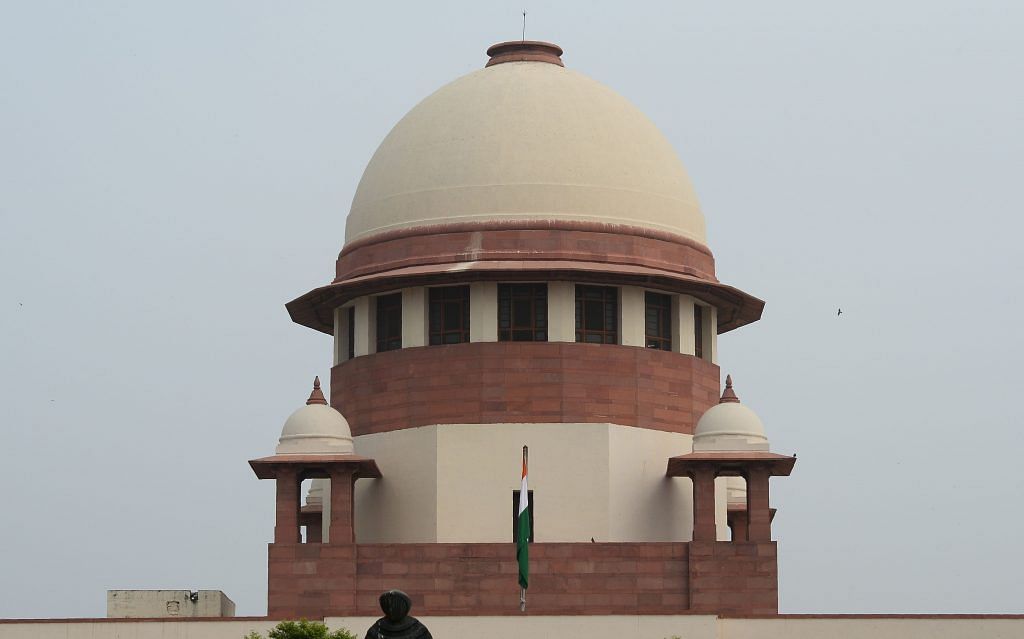Collegium seems determined to reiterate Justice Joseph’s elevation to the apex court if the government sends it back.
New Delhi: The Narendra Modi government and the higher judiciary seem to be on collision course again, with the Supreme Court collegium gearing itself for the government to send back for “reconsideration” its proposal to elevate Uttarakhand High Court Chief Justice K.M. Joseph to the apex court.
In fact, ThePrint has learnt that the collegium had anticipated the government would ask it to reconsider Joseph’s name as reported, and worked on a plan to counter the move.
The Modi government is known to be unhappy with Joseph after a hard-hitting judgment by the Uttarakhand High Court bench headed by him set aside the order imposing President’s Rule in the hill state in 2016. This unhappiness is blamed for the government not clearing Joseph’s transfer to the High Court of Andhra Pradesh and Telangana for over a year.
One part of the collegium plan was executed on 10 January when the collegium recommended the elevation of only one high court chief justice to the top court in the country – that of Joseph. The other name recommended was Indu Malhotra, a senior Supreme Court advocate.
“We knew there was a possibility that the government could use some excuse not to process the name (of Joseph). That is why it was decided to recommend only one name from among eligible high court chief justices,” a member of the collegium told ThePrint.
“The majority of members of the collegium felt that the government should clear his name first before fresh recommendations are made.”
Another member of the collegium said if the Centre sends the recommendation back, the collegium “will in all probability reiterate it”.
“Nothing has changed. He continues to be an upright and good judge. There is still nothing adverse against him. Also, notwithstanding the grounds the government could cite to deny him the elevation, the fact is that he fulfils all the criteria as per the Second and Third Judges case. But, let us wait and see,” the judge said.
Asked if the Centre’s reported explanation – that in recommending Joseph the collegium had disregarded seniority and regional representation – had some merit, one collegium member said: “This is a twisted argument. Don’t you think that when we decide on a recommendation, we consider everything from a candidate’s all-India seniority as a judge to his performance as a judge to ensuring regional representation?
“But, as I said, let us see if the government actually sends the recommendation back. For all you know, it may only be planning to sit on the file without sending it back.”
Incidentally, while recommending Joseph, the collegium had said he was “more deserving and suitable in all respects than other chief justices and senior puisne judges of high courts for being appointed as judges of the Supreme Court of India”.
Sources also said Chief Justice of India Dipak Misra, whose own position is under the scanner after four most senior SC Judges – all members of the collegium – complained about his functioning, tried to push some more names for elevation but didn’t receive any support at the meeting.
In fact, days before the meeting, other members of the collegium had categorically told the CJI that only one name from among high court judges should be recommended, the sources said.
Sources said at the 10 January meeting, at least two members of the collegium voiced the possibility of the Centre not accepting the recommendation, pointing to the fact that the Modi government had chosen not to clear Joseph’s transfer to the Andhra Pradesh and Telangana high court for over a year.
While the Centre didn’t offer any reason for sitting on the collegium’s recommendation, its unhappiness over the Uttarakhand episode is no secret.
In a stinging indictment of the manner in which the Congress-led government in Uttarakhand was removed through a Presidential proclamation, the high court had observed, “Be it suspension or dissolution, the effect is toppling a democratically elected government. It breeds cynicism in the hearts of citizens who participate in the democratic system and also undermines democracy and the foundation of federalism.”
